COMMON Defense




PAGE 5 - ARTICLE: DON'T SAY DAUBERT
PAGE 7 - UPCOMING EVENTS
PAGE 8 - ARTICLE: THIRD PARTY LITIGATION FINANCING

PAGE 12 - ARTICLE: FROM THE BENCH

PAGE 13 - YLD PRESIDENT'S MESSAGE
PAGE 14 - 2022 ANNUAL JUDICIAL RECEPTIONS
Micalann Pepe President
Brian Rubin Vice President
J.P. Harrington Bisceglia
Amanda Breemes
Parker Bunch
Dan Coumides
Todd Erb
John Gregory
Shanks Leonhardt Treasurer
Kara Klima Secretary
Jill Ormond
Imm Past President
DRI State Representative
Doreen Myles Executive Director
Amanda Heitz
Michael Hrnicek
Jason Kasting
Paul Kular
Tim McKercher

Eadie Rudder
David Schmidt
Lisa Streu
Patrick Tighe
Zara Torosyan
Victoria Torrilhon
Jim Carlson
Steven Crocchi
John Habib
Julia Lauria
Maria McKee
Seraphim Sparrow
This panel will discuss the history of Rule 702, the purpose of the proposed amendments on course to become effective in December 2023-- and why the defense bar should say “Rule 702” is the standard for admissibility of expert evidence.



In Frye v United States, the Court of Appeals for the District of Columbia considered the admissibility of expert testimony regarding the results of a systolic blood pressure deception test, a precursor to the polygraph machine The offering party, a criminal defendant, had submitted to the test and offered the expert to explain the results of the test In affirming the trial court’s decision denying the admissibility of the expert’s testimony, the Court said:

The Bar’s reference to the “Daubert standard” may have caused federal trial and appellate courts to misapply Federal Rule of Evidence 702, as amended in 2000, following the Supreme Court’s opinions in Daubert, Joiner and Kumho. Data indicates courts have often applied outdated case law, “cherry-picked” Supreme Court dicta, and generally failed to follow the requirements of Rule 702 when assessing the admissibility of expert testimony; and they have often undermined the true purpose of Daubert (and Rule 702): the trial court’s proper exercise of its gatekeeping role to ensure the reliability of admitted expert testimony In response to these trends, the FRE Advisory Committee has approved an amendment to Rule 702 to emphasize the trial court must find the expert evidence “ more likely than not” satisfies Rule 702’s requirements, including that the expert’s opinion “reflects a reliable application of the principles and methods to the facts of the case”
[W]hile courts will go a long way in admitting expert testimony deduced from a well-recognized scientific principle or discovery, the thing from which the deduction is made must be sufficiently established to





have gained general acceptance in the particular field in which it belongs
We think the systolic blood pressure deception test has not yet gained such standing and scientific recognition among physiological and psychological authorities as would justify the courts in admitting expert testimony deduced from the discovery, development, and experiments thus far made
In 1975, the Federal Rules of Evidence were enacted into law. Rule 702, in its original form, stated:
If scientific, technical, or other specialized knowledge will assist the trier of fact to understand the evidence or to determine a fact in issue, a witness qualified as an expert by knowledge, skill, experience, training, or education, may testify thereto in the form of an opinion or otherwise.
There was considerable debate among litigants, judges, and legal scholars as to whether the rule embraced the Frye standard or established a new standard Before the mid-1980s, the only significant limitation on expert testimony was that an expert witness needed to be qualified in his or her field, “beyond the ken of the jury” and helpful to the jury’s understanding of the case.
In Daubert v Merrell Dow Pharmaceuticals, Inc , the U S Supreme Court held that Rule 702 established reliability as a prerequisite for the admissibility of expert scientific testimony 6 However, the Daubert opinion contained conflicting language, which has caused confusion on whether the admissibility standard is strict or lenient


Specifically, the Court noted “the liberal thrust of the Federal Rules and their general approach of relaxing the traditional barriers to opinion testimony” as well as emphasizing the “flexible” nature of the trial court’s inquiry into the expert’s opinions
Continue reading
All webinars begin at 12pm


March 29, 2023
DocReviewPad - A Better Way to Organize, Review and Share Case Documents
April 5, 2023
TranscriptPad - Reviewing and Preparing for Depositions Has Never Been Easier
April 19, 2023
Strategic Planning for Law Firms - Frank Ramos, Clarke Silverglate

April 26, 2023
Mediation Tips for Young Lawyers - Wendi Sorensen, Burch & Cracchiolo



With Arizona’s recent elimination of Arizona Ethics Rule 5 4, entities which provide legal services are permitted to organize alternative business structures Alternative business structures involve a business entity that includes both lawyers and non-lawyers who have an economic interest or decision-making authority in a firm that provides legal services One of the goals noted by Arizona’s Supreme Court when this change was made is to allow additional capital to be infused in legal firms.
While there has been mixed reactions to this change, most of the discussion has been focused on merging legal services with additional needs clients may have, such as accounting services, estate planning, and more. However, because Arizona is the first state to permit alternative business structures for law firms, this change has also captured the attention of third-party litigation financing (“TPLF”) companies.
TPLF typically involves a funder that is not a party to a lawsuit agreeing to provide funding to a litigant or law firm in exchange for an interest in the potential recovery in a lawsuit TPLF companies view this shift in the ethical rules as an opportunity to not only provide TPLF as a third-party, but to also take an ownership stake in law firms With some TPLF companies indicating an interest in this possibility in the Arizona market, it is unclear if law firms would be willing to agree to such a novel arrangement, especially with no insight as to how successful or realistic this arrangement could be. Such an arrangement would also raise interesting ethical questions in terms of the fiduciary relationship between client’s and their attorney’s if the TPLF side of a law firm has goals that differ from the client’s. Clearly, there are more answers than questions at this stage.
What does this mean for attorneys working in the defense realm? It is possible we may see an uptick in these arrangements for mid-size or boutique firms that focus on plaintiffs work, which could trickle down to firms that focus on defense work. We could see an increase in the amount of cases mid-size and boutique firms are able to file in the coming years, even if that increase is more gradual in nature as TPLF’s trickle into the market (or try to, anyway). We could also see firms that mainly practice defense considering this same funding mechanism if insurance is not willing to foot the bill.


Whether or not we will see an increase in these TPLF companies taking ownership stakes in Arizona-based law firms is still unclear, but the door of opportunity is open. Either way, it is an important consideration to keep in mind as the legal field continues to adapt to this novel shift in Arizona’s legal practice

 By: James D. Smith, Esq. Osborn Maledon
By: James D. Smith, Esq. Osborn Maledon



Imagine you’re reading a short story or listening to a podcast Will it grab your attention if it begins, “Publishing House X, through Author John Doe, respectfully asks that you read this story (‘the Story’) that will give you some information about something”? Will the open-mic storyteller keep you engaged if she detours down oral alleys that aren’t related to the tale? Probably not But lawyers often put their audiences judges and juries to sleep by taking those approaches It seems we forgot how to tell an engaging story
Legal writing should tell a story Like everyone, judges have limited attention spans And many lack law clerks, so they’re reading everything themselves. A direct story is more engaging and easier to follow than a meandering one. Choosing longer, obscure words that we think sound more educated or distinguished almost never helps tell a direct story Don’t forget the notion of a picture being worth 1,000 words, too A map, diagram, organizational chart, or timeline almost always helps your reader understand the story Trying to sound like a lawyer guarantees we’re not telling direct stories A better approach is to try to sound like a journalist, particularly one with a good editor
Trial work is storytelling, particularly when 8 or 12 jurors know nothing about your case. It isn’t to show how smart you are or your vocabulary’s breadth Instead, it’s distilling years of facts and discovery, and maybe thousands or millions of documents, into an engaging and understandable story And the jury plays a part in your story, kind of like a Greek chorus In Arizona, the jury may ask questions, which may guide you about your story’s holes The jury will complete your story (at least at trial); consider how the instructions and verdict form mold that story’s end.
“I get it, James tell a story But what is something practical to take away?” Editing Cutting As lawyers, we’ve lived with a case for years We know everything about it Resist the urge to share everything with your judge or jury The newspaper’s editor cuts and clarifies A book publisher tells the author to remove things that don’t advance the story Film lands on the cutting room floor because the scenes add length without substance. We lawyers could use the same help sometimes.
1850 N Central Avenue Suite 2400
Phoenix, Arizona 85004 (602) 322-4011


pbunch@cavanaghlaw.com
Dan Coumides, Esq. Gust Rosenfeld

One E Washington Suite 1600
Phoenix, Arizona 85004 (602) 257-7452
dcoumides@gustlaw com
The Arizona Association of Defense Counsel’s Pro Bono Committee coordinates a program providing free, confidential, initial consultations for attorneys facing disciplinary charges through the State Bar of Arizona. The committee has established relationships with a panel of experienced attorneys to provide this free consultation to members of the State Bar of Arizona. If a member faces disciplinary charges and desires a free initial consultation, he or she may contact the AADC committee members listed below, Dan Coumides and Parker C. Bunch, who serve as the program coordinators. When a request is received, the coordinators will contact one or more panel members to determine their ability to provide the free initial consultation. The panel member will directly contact the attorney requesting the initial consultation. The entire process is strictly confidential. The AADC’s Pro Bono program has been active for many years and has helped numerous attorneys obtain counsel to navigate the difficult process of disciplinary complaints. The AADC and the Pro Bono Committee look forward to several more years of assisting Arizona attorneys through this program.
Don’t fill your summary judgment motion with the irrelevant minutia of how your opponent delayed discovery (but you eventually obtained the information). Don’t describe how opposing counsel was late to two depositions a year ago or made a mistake serving a subpoena three months ago It doesn’t matter It doesn’t tell your summary judgment story It only confuses your reader or distracts from more important information
The same goes for trial Time and juror attention spans are precious. Don’t use your case to introduce the equivalent of mean Tweets. Those might give you or your client some internal satisfaction, but they don’t help the jury do their job Imagine them deliberating: “The defense lawyer kept asking questions about ‘disclosure’ and ‘26 1’ I don’t see that in our final instructions Do you?”
Lawyers don’t write or speak without guardrails, of course We must tell our stories with admissible evidence We can’t create facts to plug a hole like a fiction writer. We have ethical obligations. We have page and time limits. The elements of claims or defenses drive what our stories will include. All true. But those realities don’t mean we aren’t telling stories They only mean we must tell our stories more carefully

Name-calling, saber-rattle, grandstanding, attacking opposing counsel These things might make you feel good They might score points with your client But they do nothing to advance the cause of persuading the judge to rule in your favor More often, they do the opposite by undermining your credibility


4. If you were to recommend on book to a young lawyer (fiction or non-fiction) regarding the legal profession, which would it be?
1. In oral argument, what is one thing lawyers who appear in front of you should always do?
Listen to the judge’s questions and answer them For some reason, lawyers who would never let a witness duck or deflect a question think ducking or deflecting the judge’s question is a good strategy It isn’t Most of the time, it telegraphs a lack of confidence in your position The most persuasive thing you can do is answer the question directly, make a concession if you have to, and ask for the chance to elaborate or explain if necessary
2 Is there anything lawyers should avoid during oral arguments?
Going through each and every one of the arguments in the briefs. Oral argument is not the time to cover all bases. That’s what the briefs are for. Oral argument is the time to focus the judge’s attention on the critical points, and to answer questions the judge has. For every oral argument, you should prepare no more than two or three key points, and prepare for any questions you might be asked
3. What is your biggest pet peeve in written motions?
The Brethren, by Woodward and Armstrong. It’s the classic and hard-to-put-down account of the U.S. Supreme Court in the early Burger years. Maybe one day we’ll know how they got all that inside information out of an institution whose deliberations are supposed to be secret.
5. Who is your favorite Supreme Court Justice and why?
James Moeller He was the judge’s judge on the Arizona Supreme Court when I clerked there in the early 90’s More interested in deciding each case on the facts and law, less interested in sweeping pronouncements or doctrinal change, he was methodical and understood how a decision would affect trial courts In my view, that’s what judicial conservatism is

The YLD has showcased renewed enthusiasm and engagement as we returned to in-person meetings and social events in the fall of 2022, and springboard into 2023. I am impressed with our Board members’ commitment to the YLD despite the myriad day-to-day demands, obstacles, and challenges that younger attorneys face. The cooperative spirit our Board has exhibited in achieving common objectives has surpassed my expectations. This group genuinely supports and appreciates each other, both as colleagues and individuals, and that’s uncommon. Having fun in the process is an ancillary, and critically important, benefit.
The YLD is excited to host multiple events in 2023 This year marks the return of the Arizona Association of Defense Counsel’s Annual Softball Tournament! This one-day event will take place at the El Dorado fields in Scottsdale on April 1, 2023 All proceeds go to Southwest Human Development, a non-profit focusing on early childhood development Historically, the battle for the tournament cup has been hotly contested, so gather up your teammates and register today! Team members are not required to work at the firm In fact, we are hoping to host a team from “The Old Pueblo” this year to add a little friendly competition between Phoenix and Tucson This BYOB event will give us a rare opportunity to “play” together rather than work!

Given the time limitations, only a limited number of teams can participate in the tournament, so round up your players and register today at: https://fundraise givesmart com/e/u-5tyg?vid=xcszc Please feel free to email me if you have any questions about the tournament nmg@jaburgwilk com
The YLD hosted a very successful CLE event in the fall led by Nate Meyer of Jaburg, Wilk, “How to Make Partners Happy & Manage a Case Load ” The presentation was well-attended with high demand for a follow up webinar On April 26, 2023, Wendi Sorensen of Burch & Cracchiolo will lead a webinar on mediation for the YLD Plans are in the works for additional YLD webinars and events. If you are interested in presenting, have any idea for an event or topic, or would like to work on a YLD Committee, please reach out to me at nmg@jaburgwilk.com. This is your professional organization, and your participation is welcome!
It’s been fun working with this group of YLD Board members over the last several months. We look forward to seeing you at the El Dorado fields on April 1, 2023 to play ball for a good cause!
Nathan M. Gallinat 2022-2023 YLD President
2022-2023 YLD President


The AADC held the Phoenix Holiday Judicial Reception on December 8, 2022 at the Westin Downtown Phoenix honoring our esteemed colleagues Judge Rosa Mroz and AADC Past President, Mike Gallagher, in memoriam Special guest Rachel Mitchell, current Maricopa County Attorney and long-time friend of Judge Mroz, shared remembrances of her life and career. Robert Mroz accepted the AADC Judicial Excellence Award on behalf of his wife, Judge Mroz. Special guest Kevin O’Malley (Gallagher & Kennedy) spoke about the life and storied career of Mike Gallagher and accepted the AADC Trailblazer Award on behalf of Mike Gallagher’s family

The AADC and Tucson Defense Bar held their joint Tucson Holiday Judicial Reception on December 14, 2022 at the Tucson Museum of Art honoring Judge Kenneth Lee of the Pima County Superior Court. Judge Richard Gordon (Pima County Superior Court) highlighted Judge Lee’s career and life. University of Arizona Law School’s Jenckes Competition Finalists were recognized and presented with award checks in honor of their accomplishments.


 Tucson Holiday Judicial Reception
Tuscon Holiday Judicial Reception
Tuscon Holiday Judicial Reception
Tucson Holiday Judicial Reception
Tuscon Holiday Judicial Reception
Tuscon Holiday Judicial Reception

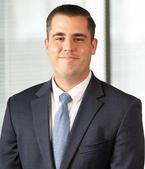
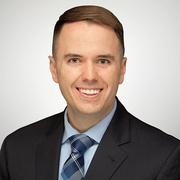

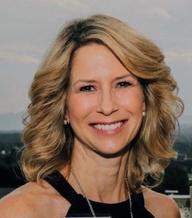

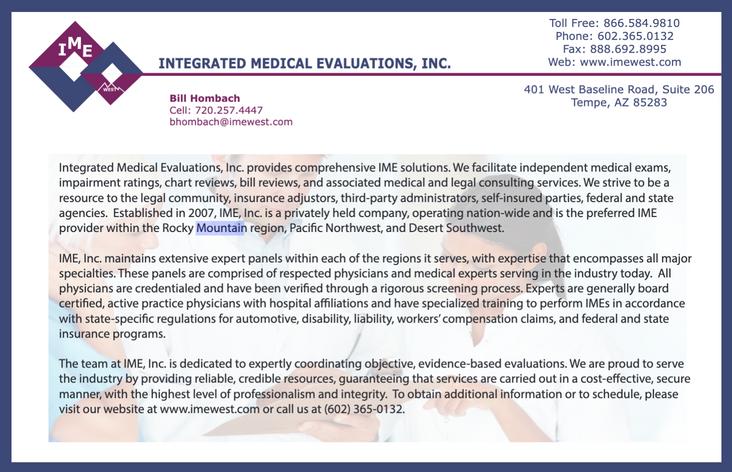
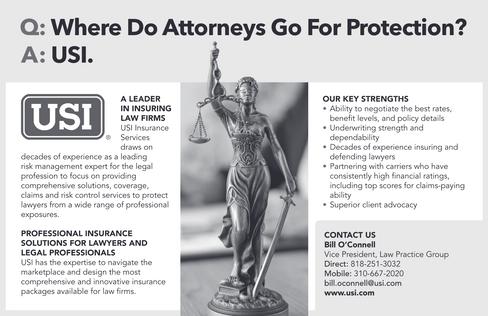
 Eadie Rudder, Carpenter Hazlewood
Dan Coumides, Gust Rosenfeld
Patrick Tighe, Snell & Wilmer
Maria McKee, Carpenter Hazlewood
Eadie Rudder, Carpenter Hazlewood
Dan Coumides, Gust Rosenfeld
Patrick Tighe, Snell & Wilmer
Maria McKee, Carpenter Hazlewood